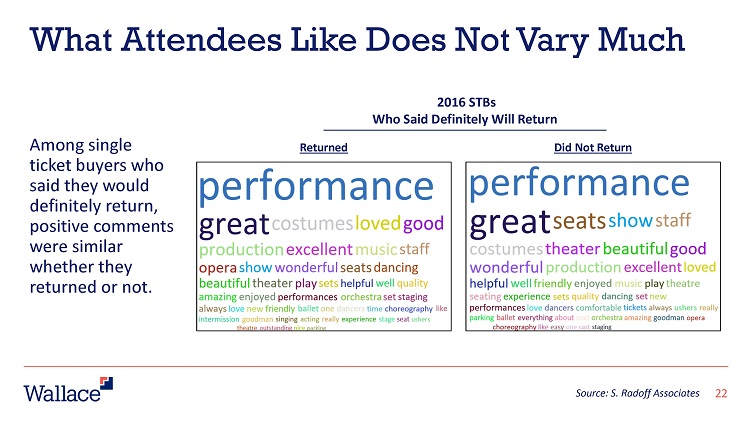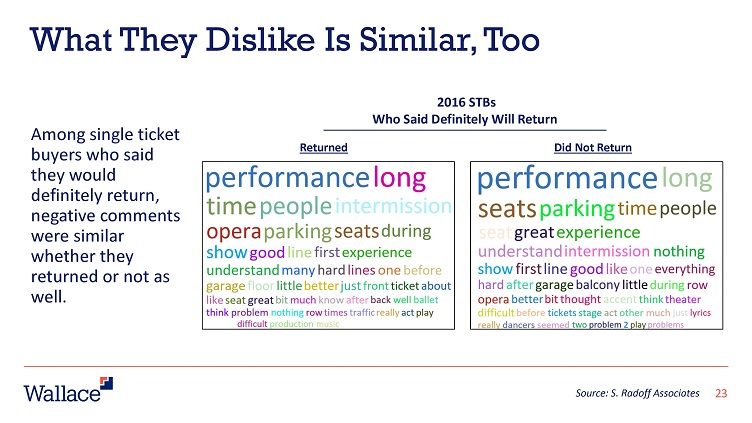I recently received an email which directed me to a 2021 study funded by the Wallace Foundation called, What They Say And What They Do which essentially looked at whether people who say they will return to a venue actually do.
Bottom line is yes, the more strongly people express a desire to return, the more likely they are to return. However, as with everything, there are some interesting nuances.
A couple disclaimers, most of which appear right at the start of the presentation. First, this research was conducted pre-Covid. Second, the three organizations that participated were “large, well-established in their discipline and predominantly white.” (Goodman Theatre, Lyric Opera, both in Chicago and Pacific Northwest Ballet in Seattle.) So your mileage may vary.
The study was conducted across the 2014-2019 seasons. Single ticket buyers were surveyed about their interest in returning and then the organizations cross referenced that data with whether the people actually purchased again. The presentation also notes that people who fill out surveys are already engaged with the organization and therefore more inclined to return. Certainly there were many who didn’t fill out the survey that may have returned. I also wondered how many may have returned where a different family member purchased the tickets and used a different email or mailing address that might have been missed.
The finding was that the stronger people expressed their interest in returning on a Likert scale, the more likely they were to return – 49% of single ticket buyers responding as “definitely” and 31% responding “probably” returned within two years. Interestingly, while enjoyment and overall experience were also associated with an actual return, these factors weren’t as strong a predictor of return as stated intent to return.
Based on these responses, the Goodman Theater focused more expensive marketing efforts on those responding they would definitely return and experienced a higher return with that group.
While those 65 and older had slightly higher rates of return, the relation between strength of stated intent to return with an actual return held true across all age groups.
What I really found interesting was that what people said they did or didn’t like was the same whether they returned or not. The presentation has charts which show responses to enjoyment of the performance and quality of experience don’t vary a lot between those who do and don’t return. But the word clouds generated from the comments really illustrate how little difference positive and negative elements factored in to whether people returned or not.
I have seen a number of studies saying if you can only ask one question on a survey, it should be whether you would recommend an experience to a friend. Whether you will return yourself seems closely related to that question. While this data is definitely limited, there are hints that stated willingness to return may be a strong indicator that someone will.



